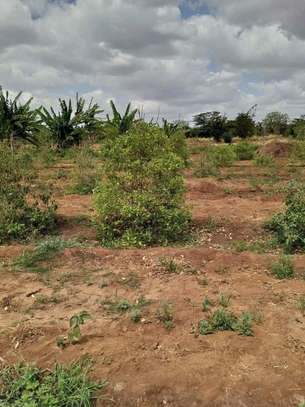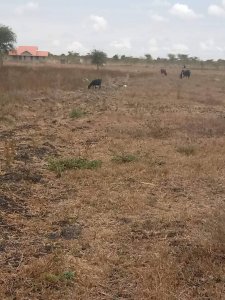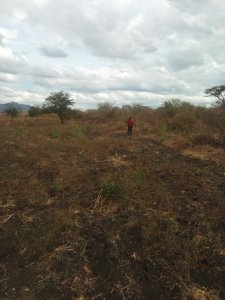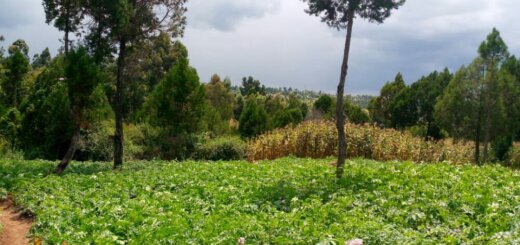Land for Sale in Kiboko: Your Gateway to Real Estate Opportunities


land for sale in kiboko
Kiboko in Makueni county stands as a promising destination for land buyers. This article digs into the intricacies of purchasing land in this charming locale, offering insights that cater to a wide array of potential buyers. Our focus is to guide you through various aspects of land acquisition in Kiboko, from understanding the local landscape to navigating the legalities of land ownership.
Diverse Land Choices
In Kiboko, the choices of land types are as varied as the dreams of its prospective buyers. The options include residential plots, agricultural land, and commercial parcels. Whether you envision a peaceful countryside residence or a thriving business enterprise, Kiboko offers an array of possibilities.
Understanding Legal Aspects
1. Land Titles and Ownership
In Kiboko, as with any real estate transaction, the foundation of secure land for sale in Kiboko lies in understanding land titles and ownership. Titles serve as proof of ownership and are a critical component of any land deal. It’s imperative to verify the authenticity of the title deeds associated with the land for sale in Kiboko that you intend to purchase. A reputable real estate agent or legal advisor can assist you in this process.
2. Legal Procedures and Regulations
The legal procedures for land for sale in Kiboko are designed to protect the interests of both buyers and sellers. Engaging legal counsel well-versed in local property laws is highly recommended. They can guide you through the legal requirements, including title searches, property surveys, and due diligence to ensure that the land for sale in Kiboko you intend to buy is free from encumbrances and disputes.
3. Land Use Zoning and Restrictions
Understanding land use zoning and restrictions is essential when considering land for sale in Kiboko. Different areas may have specific zoning regulations that dictate the type of activities permitted on the land. For example, agricultural land may have different zoning regulations compared to commercial or residential plots. It’s vital to be aware of these regulations to ensure your intended use aligns with the property’s zoning.
4. Taxation and Fees
Land transactions in Kiboko are subject to various taxes and fees. These may include stamp duty, transfer taxes, and registration fees. It’s advisable to consult with a financial advisor or legal expert to calculate the total cost of these expenses accurately. Being aware of the financial obligations associated with land for sale in Kiboko is essential for budgeting and planning.
5. Land Disputes and Resolutions
While Kiboko offers promising opportunities for land for sale, land disputes can sometimes arise. It’s important to research the history of the land for sale in Kiboko you plan to purchase and ensure that there are no ongoing disputes or legal issues. Additionally, understanding the mechanisms for dispute resolution, such as mediation or legal recourse, can provide peace of mind.
6. Environmental Regulations
Kiboko places a significant emphasis on environmental sustainability. There may be specific environmental regulations and restrictions related to land use. These regulations aim to protect natural resources and ecosystems. Compliance with these regulations is not only a legal requirement but also contributes to responsible land for sale in Kiboko, ownership, and development.
7. Contractual Agreements
In any land for sale transaction, contractual agreements play a pivotal role. These contracts outline the terms and conditions of the sale, including the purchase price, payment schedule, and any contingencies. It’s crucial to review these agreements carefully and, if necessary, seek legal advice before signing. Clear and comprehensive contracts help prevent misunderstandings and legal issues down the line.
8. Due Diligence
One of the cornerstones of a legally sound land is due diligence. This involves conducting thorough research and inspections to verify the legitimacy of the land transaction. It includes land surveys, physical inspections, and title deed verification. Investing time and effort in due diligence ensures that you are making a secure investment in land for sale in Kiboko.
Pricing and Market Trends
The value of land in Kiboko is influenced by numerous factors, such as location, accessibility, and development potential. Staying informed about the current market trends and future projections is paramount. This knowledge will empower you to make informed decisions, whether you are considering a long-term investment or immediate land use.
 The Process of Land Acquisition
The Process of Land Acquisition
1. Identifying Your Needs
The journey begins with a clear understanding of your land requirements. Are you looking for residential land, agricultural land, or commercial land for sale in Kiboko? This initial step helps you narrow down your options and find properties that align with your objectives.
2. Extensive Research
Once you’ve identified your needs, it’s time to conduct thorough research on the available land for sale in Kiboko. Online listings, local real estate agencies, and word-of-mouth recommendations can be valuable sources of information. During this phase, make note of the properties that catch your eye.
3. Site Visits and Due Diligence
The next step involves visiting the selected land parcels in person. This is a critical phase where you can assess the actual condition of the land, its surroundings, and its proximity to essential amenities. It’s also an opportunity to verify the accuracy of property details provided in listings. Don’t hesitate to ask questions and seek clarification from landowners or agents.
4. Budget and Financing
Determining your budget is a key aspect of land acquisition. Consider not only the purchase price but also additional costs such as legal fees, taxes, and potential development expenses. If you require financing, explore your options and secure the necessary funding before proceeding.
5. Negotiation and Offer
Once you’ve found the ideal land for sale in Kiboko that meets your criteria, it’s time to negotiate with the seller. Negotiations may involve price adjustments, terms and conditions, or any special considerations. Be prepared to make a formal offer when both parties agree on the terms.
6. Legal Documentation
After reaching an agreement, the next step is to initiate the legal process. This involves drafting a purchase agreement that outlines the terms and conditions of the sale, including the sale price, payment schedule, and any contingencies. Legal experts or real estate attorneys can be invaluable in this phase to ensure all legal requirements are met.
7. Due Diligence Continued
While the legal process is underway, continue your due diligence. Verify the land’s ownership, ensure it has a clear title, and check for any encumbrances or legal disputes associated with the property. This step is crucial to avoid potential complications after the purchase.
8. Closing the Deal
Once all legal requirements are met, you’ll proceed to close the deal. This involves signing the necessary documents, transferring the land ownership, and making the payment as per the agreement. It’s essential to adhere to all legal procedures to ensure a smooth and legally sound transaction.
9. Post-Acquisition Planning
After acquiring the land for sale in Kiboko, it’s time to plan for its use or development. Whether you intend to build a home, start a business, or cultivate the land, having a clear post-acquisition strategy is essential. Consider factors such as zoning regulations, permits, and any environmental assessments that may be required.
10. Enjoying Your New Property
Congratulations! You’ve successfully acquired land for sale in Kiboko, and now it’s time to enjoy the benefits of your investment. Whether you’re building your dream home or embarking on a new venture, Kiboko’s land offers a world of possibilities for you to explore and make the most of your newfound property.
 Land Development Prospects
Land Development Prospects
Kiboko offers not just land but also the promise of development. From agricultural endeavors to housing projects and commercial ventures, the potential for growth in this region is substantial. Responsible development can positively impact both landowners and the local community.
Navigating Challenges
1. Legal Complexities in Land Transactions
One of the foremost challenges in the realm of land acquisition is the legal intricacies involved. When it comes to land for sale in Kiboko, it’s imperative to understand the local land laws, regulations, and the specific legal framework governing land transactions. These legal complexities may include issues related to land titles, zoning regulations, and property boundaries.
Navigating these legal challenges often necessitates the involvement of legal professionals who are well-versed in Kiboko’s land laws. Seeking legal counsel ensures that your land purchase is in full compliance with local regulations and safeguards your investment.
2. Identifying the Right Parcel of Land
Kiboko offers a diverse range of land options, including residential plots, agricultural land, and commercial parcels. However, the challenge lies in identifying the right parcel of land that aligns with your objectives and preferences. It’s common for buyers to encounter difficulties in finding land that meets their specific requirements, such as location, size, and potential for development.
To overcome this challenge, thorough research and working with local real estate agents can be immensely beneficial. These professionals have in-depth knowledge of the local property market and can help you identify suitable land options that match your criteria.
3. Due Diligence and Land Inspection
Conducting due diligence and thorough land inspections are essential steps in the land acquisition process. This involves assessing the condition of the land, potential environmental issues, and any encumbrances that may affect your ownership rights. However, this can be a challenging task, especially for buyers who are not familiar with the intricacies of land inspection.
To address this challenge, it’s advisable to hire qualified surveyors and environmental experts. They can conduct comprehensive land inspections and provide you with a detailed report, helping you make an informed decision regarding the land’s suitability for your intended use.
4. Negotiating Fair Purchase Prices
Price negotiation is a common challenge in the purchase of land for sale in Kiboko. Sellers may have varying expectations regarding the value of their land, and buyers must navigate the negotiation process to secure a fair deal. Balancing your budget with the seller’s expectations can be a delicate task.
Engaging in effective negotiation often requires the assistance of experienced real estate agents or property appraisers. They can help you determine the fair market value of the land and negotiate on your behalf, ensuring that you achieve a mutually beneficial agreement.
5. Land Documentation and Title Transfers
The final stages of acquiring land involve completing legal documentation and transferring the land title to the new owner. This process can be challenging for buyers, particularly if they are unfamiliar with the required paperwork and procedures.
To overcome this challenge, it’s crucial to work closely with legal experts who specialize in land transactions. They can guide you through the documentation process, ensuring that all necessary paperwork is completed accurately and in compliance with local regulations.
Looking Ahead
The future of land in Kiboko is a topic of interest for many potential buyers. Understanding how government policies and market dynamics may shape the future of land ownership in this region is vital for making well-informed investment decisions.
Frequently Asked Questions About Land for Sale in Kiboko
1. What types of land are available for sale in Kiboko?
- Kiboko offers a range of land types, including residential, agricultural, and commercial plots. You can choose the type that suits your needs and goals.
2. Is it necessary to hire a lawyer when buying land in Kiboko?
- Yes, it’s highly advisable to seek legal assistance when purchasing land in Kiboko. A lawyer can help you navigate local land laws, ensure a smooth transaction, and protect your interests.
3. What factors influence the prices of land for sale in Kiboko?
- Land prices in Kiboko are influenced by various factors, including location, accessibility, size, and potential for development. Desirable locations or areas with growth potential may have higher prices.
4. How do I start the process of buying land in Kiboko?
- The process typically begins with identifying a suitable plot of land. Afterward, you should conduct due diligence, including land inspection, and then proceed with negotiations and legal documentation.
5. Can I purchase agricultural land for farming purposes in Kiboko?
- Yes, Kiboko offers fertile agricultural land suitable for farming. Many individuals and businesses invest in agricultural land for various farming activities.
6. Are there opportunities for commercial land development in Kiboko?
- Yes, Kiboko presents various opportunities for commercial land development. You can explore options such as establishing businesses, warehouses, or other commercial ventures.
7. What challenges should I be aware of when buying land in Kiboko?
- Common challenges may include dealing with complex legal procedures, ensuring the land’s suitability for your intended use, and understanding local regulations. It’s important to be well-informed and seek professional guidance.
8. What are the future projections for land values in Kiboko?
- Land values in Kiboko are expected to increase due to ongoing development and market trends. However, specific projections can vary depending on factors like location and demand.
9. How can I ensure that my land purchase in Kiboko is a good investment?
To make a wise investment, research the local real estate market, understand the legal aspects of land acquisition, consider the future development potential, and conduct due diligence on the chosen land parcel. Seeking advice from experts is also recommended.



